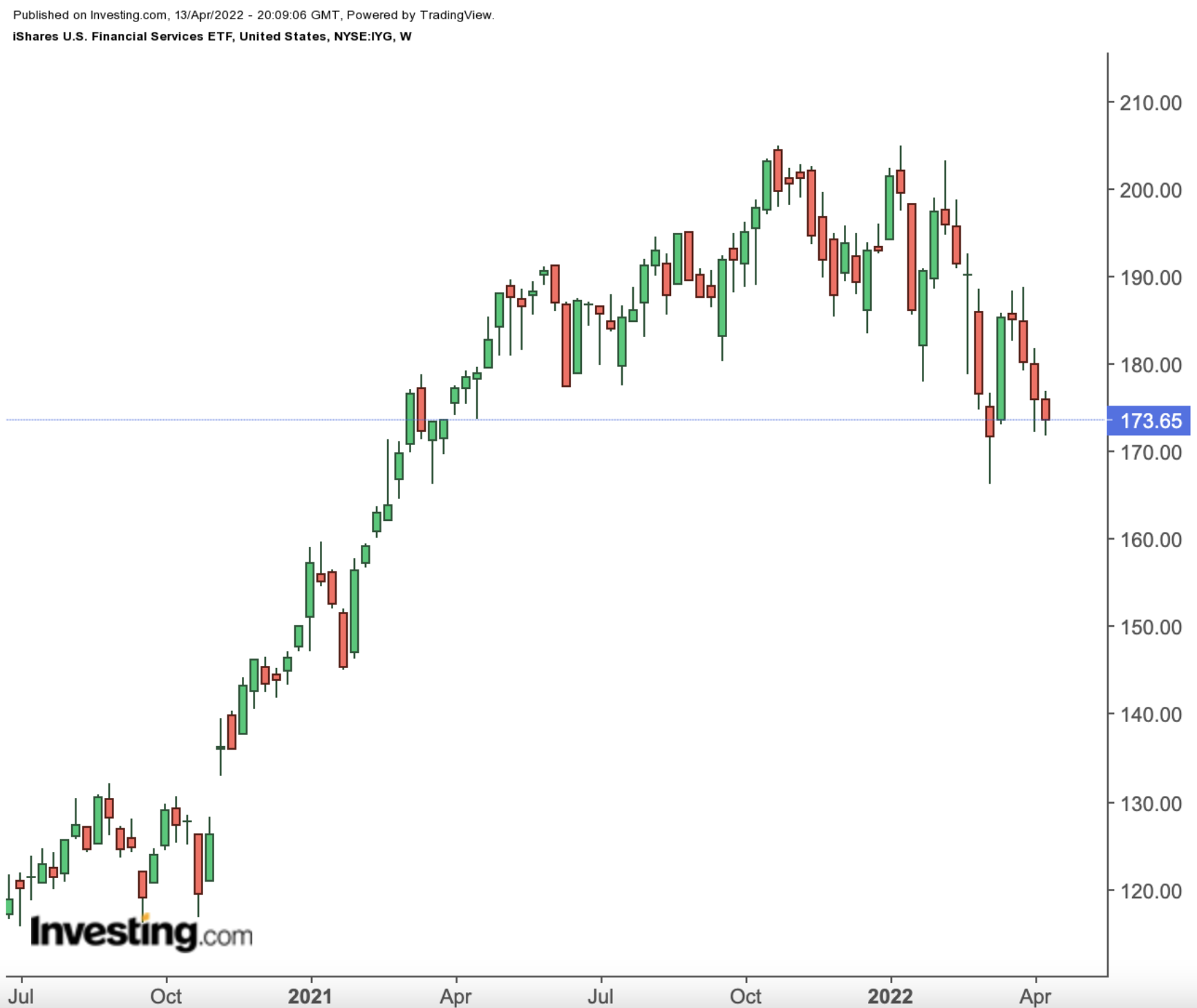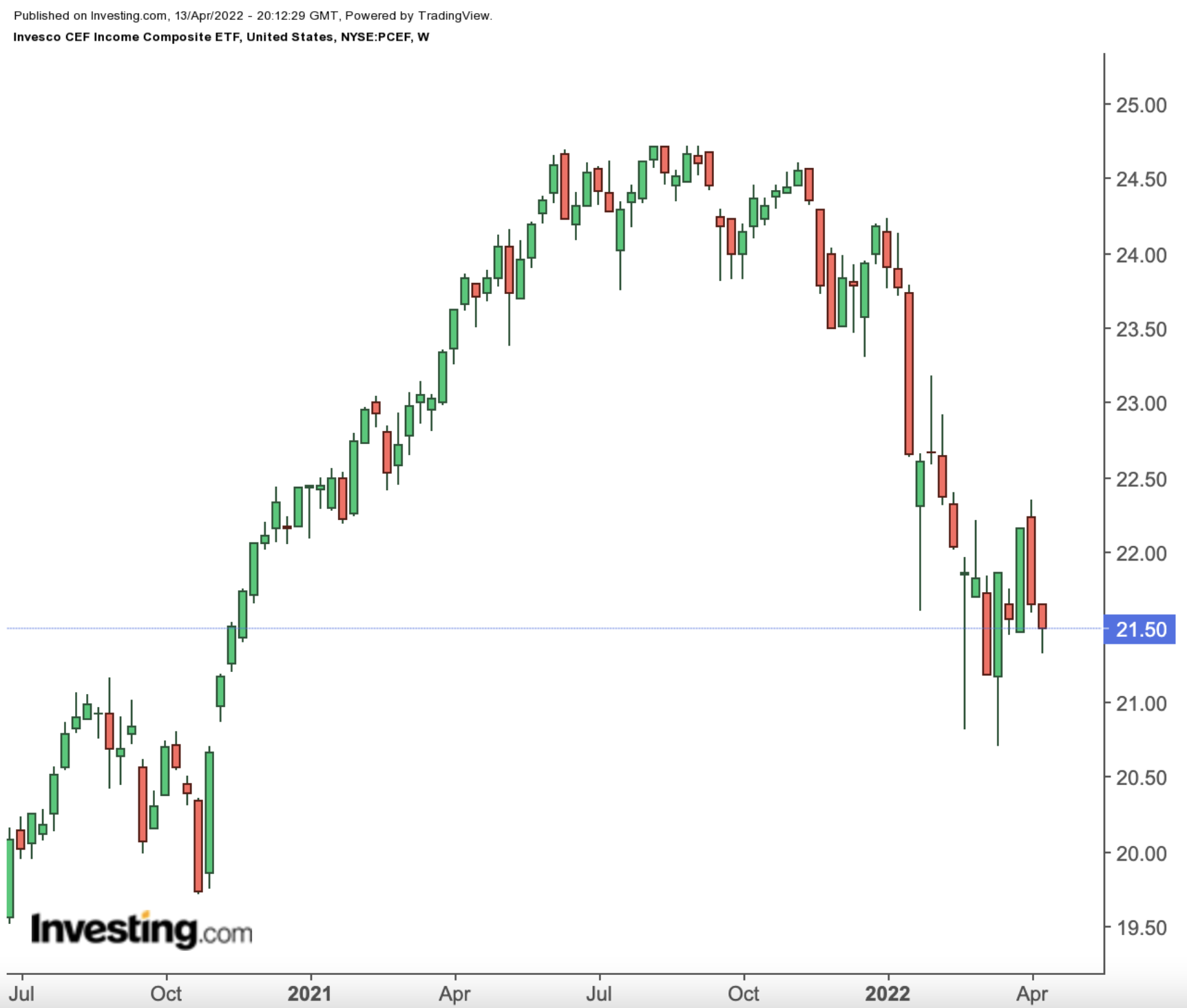Record inflation levels, rising interest rates, and current geopolitical worries represent a big question mark for many sectors of the economy.
Knowing that Wall Street does not like uncertainty, seasoned investors have already started to look for diversified asset classes and sectors that may help protect their portfolios.
March metrics released by the U.S. Bureau of Labor Statistics put headline inflation at 8.5%, its highest level in over four decades. In February, it had been 7.9%. Hartford Funds research reveals:
“When inflation was high (above 3% on average) and rising, equities fared no better than a coin toss.”
Meanwhile, according to estimates, the likelihood of a 50bps rate hike in the Fed’s next meeting has increased. A recent Reuters poll suggests that:
“The Federal Reserve is expected to deliver two back-to-back half-point interest rate hikes in May and June.”
However, there are still a few sectors and asset classes that could potentially offer a buffer against this backdrop.
InvestingPro Ideas
Readers may want to know that the InvestingPro website provides ideas for stocks that could benefit from increasing interest rates. For instance, if we look at companies by market capitalization (cap), among large-caps are Charles Schwab (NYSE:SCHW); eBay (NASDAQ:EBAY); and the cloud-based human capital management (HCM) specialist Automatic Data Processing (NASDAQ:ADP).
Wall Street pays attention to financial stocks as potential winners when rates go up. For the sector, increasing rates typically mean higher profitability.
Some of the names in the sector that currently trade below estimated intrinsic values are Western Union (NYSE:WU) and Northern Trust (NASDAQ:NTRS).
With regard to year-over-year (YOY) revenue growth, two high-growth stocks to focus on are the payroll specialist Paychex (NASDAQ:PAYX) and CBIZ (NYSE:CBZ), which provides financial, insurance, and advisory services.
Finally, investors who pay attention to analysts’ price targets may want to research several stocks further. They include the financial technology (fintech) group BGC Partners (NASDAQ:BGCP); and payment technology services provider Global Payments (NYSE:GPN).
Today’s article discusses two exchange-traded funds (ETFs) that could be appropriate for the current macro environment.
1. iShares U.S. Financial Services ETF
- Current Price: $173.75
- 52-week range: $166.32-$205.00
- Dividend yield: 1.48%
- Expense ratio: 0.41% per year
Our first ETF focuses on financial stocks, many of which are reporting Q1 results in the coming days. Therefore, we could see choppiness in the sector.
For instance, on Wednesday, Apr. 13, JPMorgan Chase (NYSE:JPM) reported earnings which raised eyebrows. Profits fell in Q1 on fewer deals and lower trading activity. As we write, following the release of the results, JPM stock closed the day down 3.22%.
Our first fund, the iShares U.S. Financial Services ETF (NYSE:IYG), invests mostly in commercial and investment banks, asset managers, and credit card companies. It was first launched in June 2000.

The ETF, which tracks the Dow Jones U.S. Financial Services Composite Index, holds 106 stocks. Diversified financial names have the largest slice with 42%. Next are banks (40.5%) and software devices (17%).
The top 10 holdings account for around 55% of $2.2 billion in net assets. JPMorgan Chase; Visa (NYSE:V); Mastercard (NYSE:MA); Bank of America (NYSE:BAC); and Wells Fargo (NYSE:WFC) lead the names on the roster.
IYG is down 10% year-to-date (YTD) and 1.3% over the past 12 months. Its price-to-earnings (P/E) and price-to-book (P/B) ratios stand at 12.38x and 1.95x. Given the recent decline, we believe IYG deserves to be on your watchlist.
2. Invesco CEF Income Composite ETF
- Current Price: $21.50
- 52-week range: $20.70-$24.72
- Dividend yield: 7.47%
- Expense ratio: 1.97% per year
Next on our list is the Invesco CEF Income Composite ETF (NYSE:PCEF), which gives exposure to closed-end funds that typically invest in investment-grade fixed-income securities, high-yield fixed-income securities, and equity covered-call strategies. The ETF started trading in February 2010. Potential investors should note the high expense ratio.

PCEF, which follows the S-Network Composite Closed-End Fund Index, has 127 holdings. The top 10 comprise roughly a quarter of net assets of $821 million.
In terms of asset classes and strategies, we see bonds (36.9%), option income (34.8%), and high-yield bonds (28.4%).
The leading funds in PCEF currently include:
- PIMCO Dynamic Income Fund (NYSE:PDI)
- Eaton Vance Tax-Managed Global Diversified Equity Income Fund (NYSE:EXG)
- BlackRock Enhanced Equity Dividend Fund (NYSE:BDJ)
- Nuveen Preferred Securities Income Fund (NYSE:JPS)
- Virtus Dividend Interest & Premium Strategy Fund (NYSE:NFJ)
PCEF is down close to 11% since January and 8.9% over the past 12 months. Yet it currently supports a hefty dividend yielding 7.4%. Therefore, it could appeal to potential passive income investors looking for some place to park their money in coming weeks.
